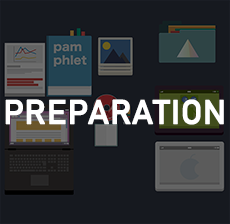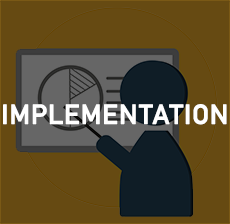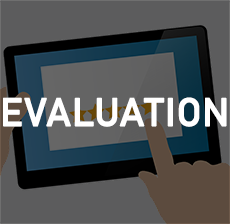Work programme
The work programme consists of several teaching activities, including blended and distance learning, a student exchange programme, a research network to develop a project on energy poverty, and additional activities – such as seminars and workshop - to discuss the issue and to disseminate the EU policies to handle it.
The whole project – lasting three years - is organized according to three phases: preparation, implementation and evaluation. Even though these phases have a distinct rationale, they overlap in several moments. Teaching, research and dissemination activities are indissolubly linked at university level, so that results of research activity foster the course design for the following academic year. Indeed, as teaching courses are offered yearly, feedbacks from the evaluation phase can improve course design and dissemination activities.
 |
In the preparation phase of teaching activities, student materials are organized and made available on the university e-learning platform. For the distance learning course on energy poverty, lectures will be recorded to be posted on the virtual platform working jointly with the staff of the UNIFI DIDeL project. Lectures by visiting teachers and experts will also be planned and scheduled in the academic calendar. The student awards program will be organized to be announced at the beginning of the first semester: criteria for student selection, dates and aims of the study abroad program will be listed in a document for the approval of the faculty council. For preparing the research project, data on energy consumption and other macroeconomic variables for households are collected and the related literature is reviewed. |
|
The implementation phase includes the performance of teaching activities and seminars, with assessment of student progress through online quizzes and forum organized with the e-learning platform. Empirical analysis of the determinants of energy household consumption is be carried out and results are analysed. In this phase, students for the awards are selected and visits are funded with scholarships and carried out. |
 |
 |
Evaluation of teaching activities by the students is performed through official questionnaires that all students are obliged to fill before their exams. As regards the research project, evaluation and follow-up is carried our both annually and at the end of the three-year project. The follow-up of these activities includes delivering this information to the public with workshops and seminars open to public and to local policymakers. Finally, the evaluation of the student exchange includes a final report of the activities during the study visit by the students involved, a report by the supervising teacher of the partner university and a final assessment by the teaching staff of HOPPER. |
During all the project, the dissemination activity is realized through the website and the interactive e-learning platform. Additional dissemination activities include the participation to national and international conferences, the organization of events open to the public, to policymakers and interest groups. All these dissemination activities are carried out in collaboration with the Centre of Excellence Jean Monnet of the University of Florence (www.shareu.unifi.it). Seminars to students of the Engineering department of the host institution are planned to reach a broader audience on these issues. At the end of the period, HOPPER outcomes will be collected and published in a book with a university press.
All these activities are key to reach the objective of promoting innovation in teaching and research and to foster the dialogue with policymakers. Likewise, they are meant to reach the priority target groups of the project.


